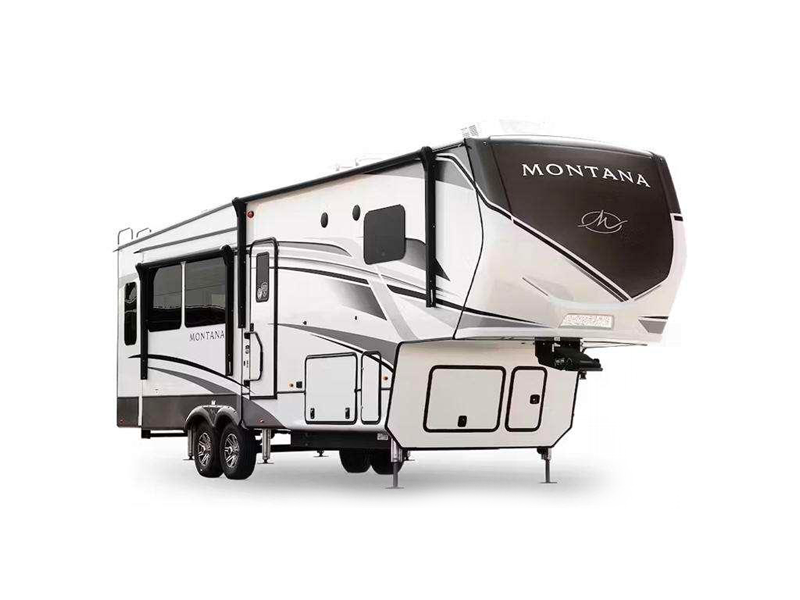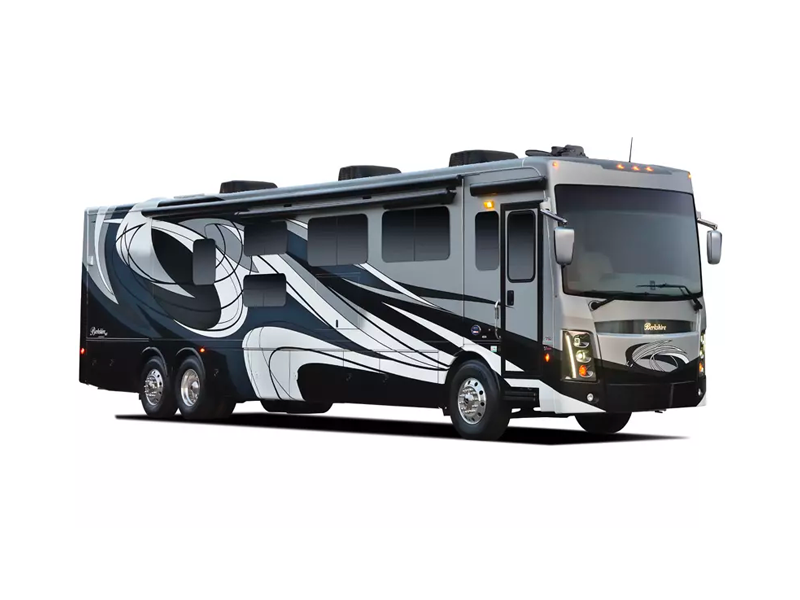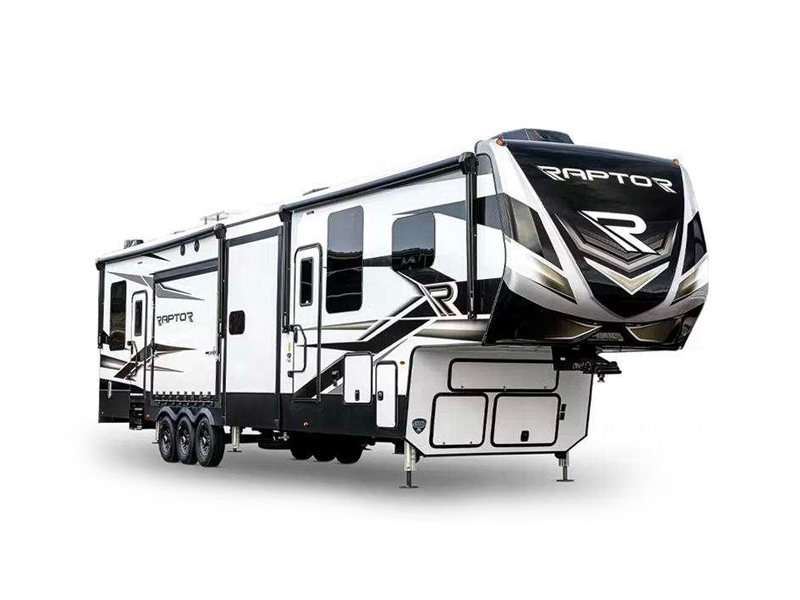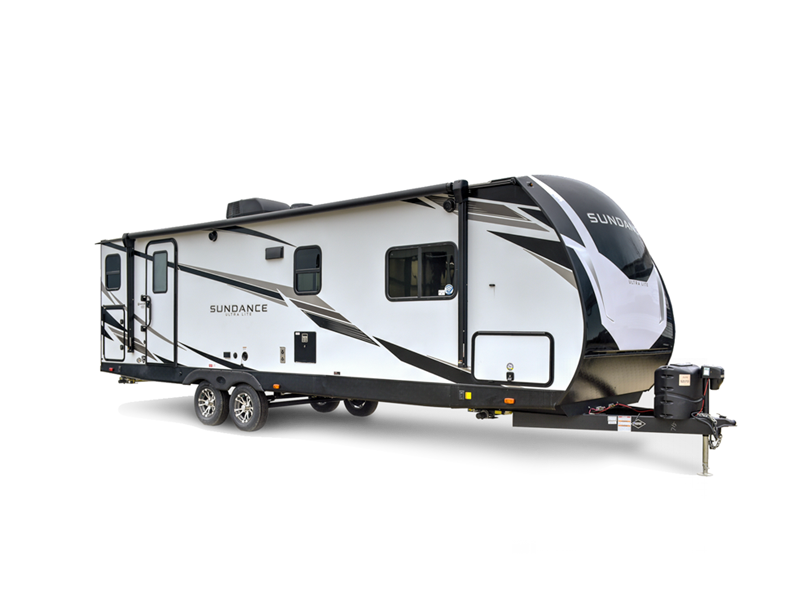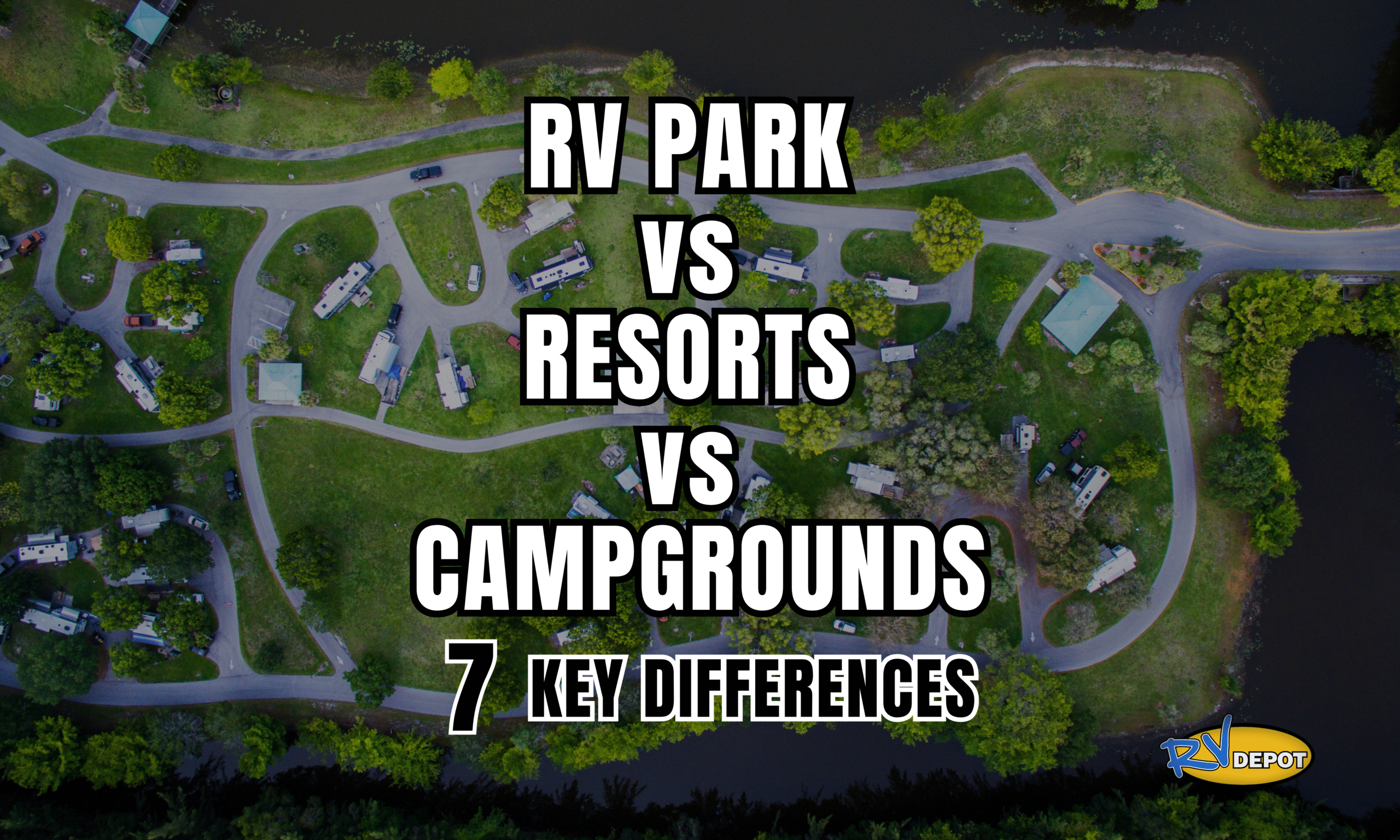So you’ve made the smart decision to transition to full-time RV living, ditched expensive rent payments, and you’re ready to find your new home base. But now comes the crucial question: “Where can we park long-term without breaking the bank?” That’s where long-term RV parks designed for extended stays become your pathway to affordable, comfortable living.
Unlike overnight campgrounds designed for vacationers, long-term RV parks cater specifically to people who’ve chosen RV living as their housing solution. These communities offer monthly rates, all-inclusive packages, and amenities that make full-time RV living not just possible, but genuinely enjoyable and cost-effective.
Here’s your complete guide to finding long-term RV parks that provide real value for full-time RVers who want community, comfort, and significant savings over traditional housing.
What Makes Long-Term RV Parks Different from Regular Campgrounds
Long-term RV parks operate on completely different principles than vacation campgrounds. While regular RV parks focus on short-term stays with nightly rates, long-term parks understand that you’re looking for a home, not a vacation spot.
All-Inclusive Monthly Pricing The best long-term RV parks offer monthly rates that include everything you need for comfortable living. Take Midway Meadows RV Park, for example—they provide an all-inclusive monthly rate of $650 for premium 40′ x 50′ spaces that include free electric, water, sewer, trash, WiFi, complimentary laundromats, and full bath/shower rooms.
Compare that $650 monthly total to typical apartment living: $1,200-1,800 rent plus $100-200 utilities plus internet plus laundry costs. The savings become immediately obvious, often totaling $800-1,400 monthly while providing a superior living experience with outdoor space and community amenities.
Community-Focused Amenities Long-term RV parks invest in amenities that matter for daily living rather than vacation entertainment. Instead of game rooms and swimming pools, you’ll find practical features like reliable laundry facilities, package receiving services, community gardens, dog parks, and walking trails that enhance your daily quality of life.
Many parks also foster genuine communities where neighbors look out for each other, share resources, and create the kind of social connections that apartment living rarely provides.
Flexible Lease Terms Unlike apartment leases that lock you into annual commitments, long-term RV parks typically offer month-to-month arrangements that provide housing security without trapping you in long-term obligations. This flexibility proves invaluable for people transitioning to RV living, allowing you to test different areas or move based on changing circumstances.
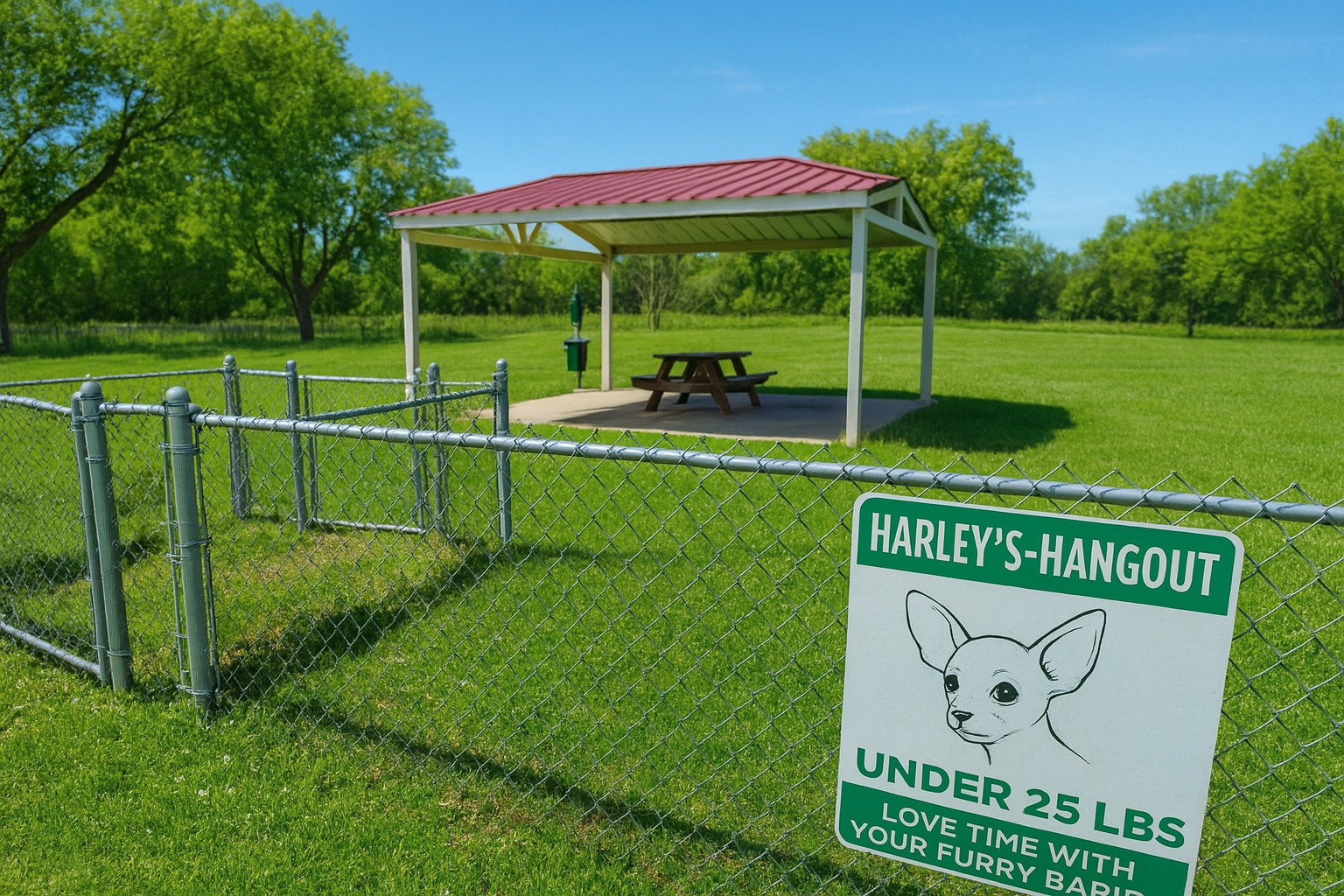
How to Evaluate Long-Term RV Parks for Value and Comfort
Finding the right long-term RV parks requires looking beyond pretty websites and marketing photos. You need to evaluate parks based on factors that matter for daily living rather than vacation appeal.
All-Inclusive vs. Itemized Pricing The best long-term RV parks offer transparent all-inclusive pricing that eliminates surprise charges and makes budgeting simple. When parks like Midway Meadows quote $650 monthly for everything including utilities, WiFi, and laundry, you know exactly what your housing costs will be each month.
Avoid parks that advertise low base rates but charge separately for electric, water, sewer, WiFi, and amenities. These itemized pricing structures often result in total monthly costs higher than all-inclusive parks while creating budgeting uncertainty.
Space Size and Privacy Quality long-term RV parks provide adequately sized spaces that allow for comfortable outdoor living. Look for parks offering spaces at least 40′ x 50′ like Midway Meadows, which provides room for your RV plus outdoor furniture, grills, and personal space that doesn’t infringe on neighbors.
Smaller spaces might work for overnight stays, but full-time living requires room to spread out, maintain your RV properly, and enjoy outdoor activities that enhance your quality of life.
Essential Infrastructure Quality Reliable utilities become crucial when you’re living full-time rather than camping temporarily. Evaluate parks based on their electrical systems (adequate amperage for daily living), water pressure and quality, sewer system reliability, and internet speed that supports modern connectivity needs.
The best long-term RV parks invest in infrastructure upgrades that support year-round residents rather than just meeting minimum standards for short-term campers.
Top Resources for Finding Long-Term RV Parks
Discovering quality long-term RV parks requires using specialized resources that focus on extended-stay facilities rather than vacation campgrounds.
| Resource Type | Platform | Best For | Key Features |
|---|---|---|---|
| Online Directories | RV Life Campground Reviews | Monthly rate research | Filters for extended stays, reviews from full-time RVers |
| Online Directories | Campendium | All-inclusive amenities | Monthly rates, mail service, package delivery info |
| Online Directories | AllStays | Comprehensive listings | User reviews focused on daily living vs. vacation |
| Community Networks | Facebook Groups | Real-time recommendations | “Full-Time RV Living,” regional groups, lived experiences |
| Community Networks | RV Forums (RV.net) | Detailed park discussions | Management reviews, maintenance assessments |
| Community Networks | Word-of-Mouth | Hidden gems | Best parks that don’t advertise heavily |
Regional Advantages: Why Texas Long-Term RV Parks Excel
Texas offers unique advantages for long-term RV parks that make the state particularly attractive for full-time RV living.
Year-Round Comfortable Living Texas climate allows comfortable outdoor RV living throughout most of the year, making long-term RV parks here ideal for people who want to maximize their outdoor living space. Parks like Midway Meadows take advantage of this climate with features like paved walking trails, multiple picnic areas, and pet parks set between crystal clear creeks.
This year-round outdoor accessibility means you’re not paying for indoor space you don’t need while getting maximum value from outdoor amenities that enhance your daily living experience.
No State Income Tax Benefit! Texas residents avoid state income taxes, leaving more money available for housing costs and lifestyle expenses. This tax advantage often makes monthly rates at long-term RV parks even more attractive compared to states where residents pay both housing costs and significant state income taxes.
For retirees especially, Texas tax advantages combined with affordable RV park living create powerful financial synergies that stretch fixed incomes much further than traditional housing arrangements.
Strong RV Infrastructure and Community Texas has well-developed networks of long-term RV parks, service facilities, and RV communities that support successful full-time living. This infrastructure means you have options for relocating within the state while maintaining similar living costs and community experiences.
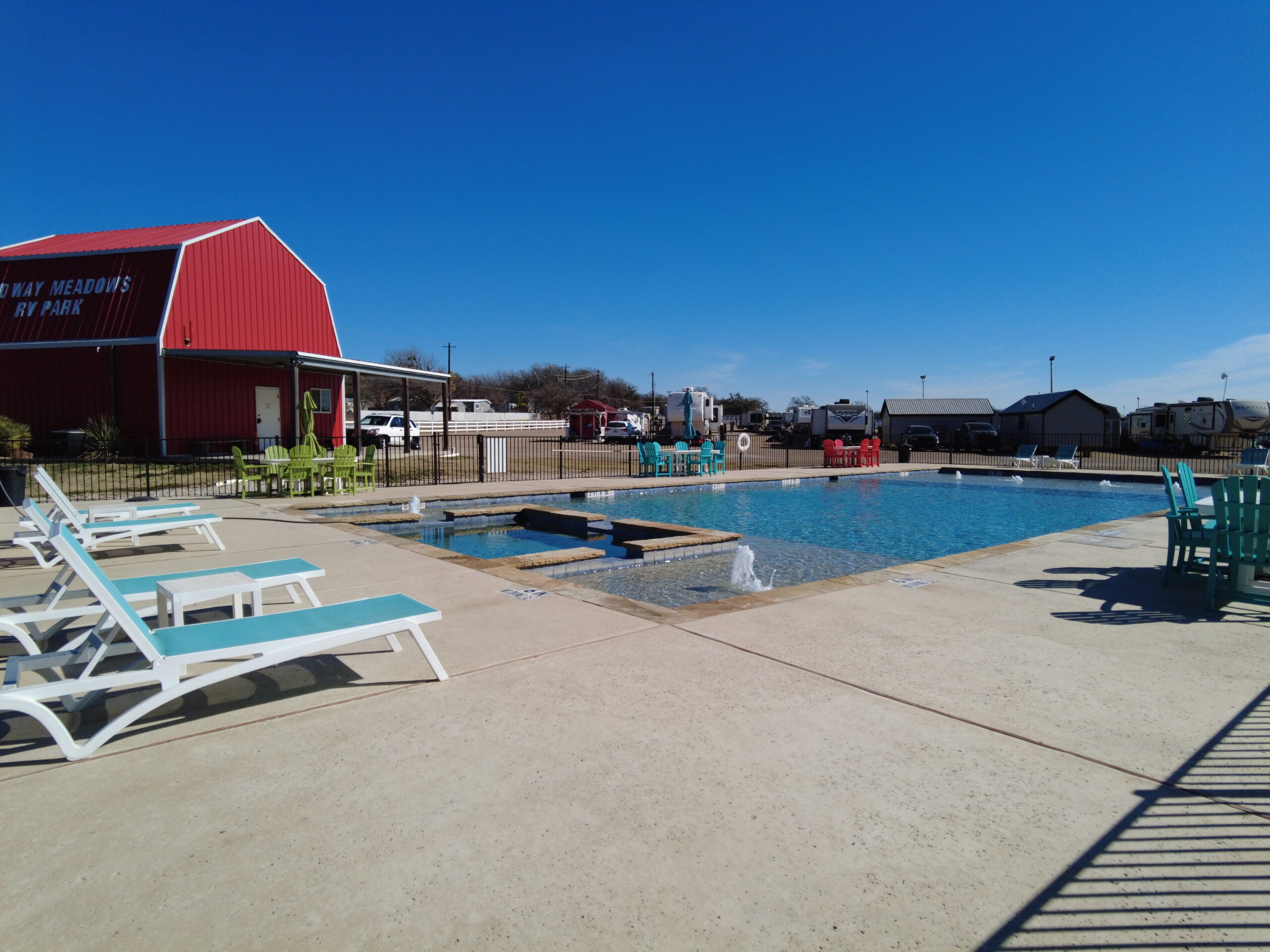
What to Look for in Long-Term RV Park Amenities
The best long-term RV parks invest in amenities that enhance daily living rather than impressive features that photograph well but don’t add practical value.
| Amenity Category | Feature | Why It Matters | What to Look For |
|---|---|---|---|
| Daily Living Essentials | Laundry Facilities | Regular washing without leaving park | Adequate machines, included in rent, convenient hours |
| Daily Living Essentials | Mail/Package Service | Secure delivery for full-time residents | Safe holding, regular pickup, no extra fees |
| Daily Living Essentials | Restroom/Showers | Backup when RV systems need maintenance | Clean, accessible 24/7, well-maintained |
| Daily Living Essentials | Guest Parking | Space for visitors and extra vehicles | Adequate spots, reasonable guest policies |
| Community Features | Dog Parks/Pet Areas | Safe exercise without long drives | Fenced areas, waste stations, nearby access |
| Community Features | Walking Trails | Healthy lifestyle and neighbor interaction | Well-maintained paths, good lighting, scenic routes |
| Community Features | Gathering Spaces | Social connections with long-term residents | Clubhouses, fire pits, picnic areas with seating |
| Community Features | Practical Outdoor Areas | Enhanced RV living experience | Community gardens, workshops, storage facilities |
Budgeting for Long-Term RV Park Living
Understanding the true costs of long-term RV parks helps you make informed decisions and budget effectively for your transition to full-time RV living.
The All-Inclusive Advantage vs. Hidden Fee Traps When you’re evaluating long-term RV parks, don’t fall for the low advertised rates that seem too good to be true—they usually are. Parks advertising $400 monthly rates typically hit you with separate charges for electric ($100-150), water and sewer ($50), WiFi ($30), laundry access ($40), and various amenity fees ($20). By the time you add everything up, you’re paying $640-690 monthly, and that’s before any usage overages or surprise fees.
Compare that to all-inclusive parks like Midway Meadows, which charges $650 monthly for everything—electric, water, sewer, trash, WiFi, laundry, and full bath facilities. You know exactly what you’re paying every month, there are no surprise utility bills, and you can budget confidently without worrying about seasonal electric spikes or unexpected fees. The peace of mind alone makes all-inclusive pricing worth the slight premium, if there even is one.
Your Complete Full-Time RV Living Budget Beyond park fees, you’ll need to budget for additional costs that come with full-time RV living. RV insurance designed for full-time living typically runs $100-300 monthly depending on your RV’s value and coverage level—this isn’t optional if you’re using your RV as your primary residence. Smart RV owners also set aside $100-200 monthly for maintenance reserves because daily use means more frequent repairs, upgrades, and routine maintenance than weekend camping requires.
Don’t forget smaller annual costs like vehicle registration and inspection fees, which vary by state but typically add $120-300 yearly to your budget. Add in propane costs for heating, cooking, and hot water ($50-150 monthly depending on usage and season), and your total monthly living costs typically range from $760-1,475. Even at the higher end, that’s still significantly less than the $1,500-3,000 monthly that apartment living costs in most areas, while providing ownership benefits and location flexibility that rental housing simply cannot match.
Questions to Ask Before Choosing Long-Term RV Parks
Before committing to long-term RV parks, ask specific questions that reveal whether the park truly supports comfortable full-time living.
Q: What percentage of your residents are long-term versus short-term? A: Look for parks with 60% or higher long-term residents. These parks typically invest in better amenities and foster community atmosphere that supports full-time living rather than just catering to weekend campers.
Q: How do you handle maintenance requests and what’s your typical response time? A: Reliable maintenance becomes crucial when you’re living full-time rather than just visiting temporarily. Good parks respond to urgent issues within 24 hours and routine requests within 3-5 days.
Q: Do you have quiet hours or community standards that support comfortable living? A: Full-time residents need reasonable noise policies (typically 10 PM to 7 AM quiet hours) and community guidelines that create pleasant living environments without excessive partying or disruptive behavior.
Q: How reliable is your cell phone coverage and internet service? A: Connectivity becomes essential for work, communication, and entertainment when you’re living full-time. Ask about WiFi speeds, data limits, and whether multiple carriers work well throughout the park.
Q: What’s your policy on visitors and guest parking? A: Full-time residents need flexibility for family visits and social connections. Avoid parks with restrictive guest policies that limit overnight visitors or charge excessive guest fees.
Q: Are there restrictions on RV modifications, awnings, or outdoor improvements? A: Some parks limit modifications that can enhance your living comfort and outdoor space utilization. Ask about policies on permanent awnings, outdoor furniture, garden areas, or small sheds that could improve your quality of life.
Building Community in Long-Term RV Parks
The social aspects of long-term RV parks can significantly enhance your quality of life, but building community connections requires some effort and the right park environment. Look for long-term RV parks that actively foster community through organized activities, shared spaces, and management that encourages neighbor interactions. Parks with features like community gardens, regular social events, or shared workshop spaces typically develop stronger resident communities.
Successful full-time RV living often involves contributing to the park community through participation in activities, helping with maintenance projects, or organizing social events that benefit all residents. This community involvement creates social connections that enhance your living experience while building relationships that provide mutual support during challenges or emergencies.
Why RV Depot Customers Love Long-Term RV Park Living
At RV Depot in Cleburne, Texas, many of our customers transition to full-time RV living and discover that long-term RV parks provide superior housing value compared to traditional rental or homeownership situations. Our inventory focuses on RVs specifically chosen for their suitability to full-time and extended living situations. We stock fifth wheels, travel trailers, and other units designed for daily use rather than weekend recreation, ensuring your RV investment works well in long-term RV parks.
Our experienced sales team understands the practical requirements of full-time RV living and can help you choose units that provide reliable, comfortable housing that justifies the transition from traditional housing arrangements. Our sales professionals understand the connection between choosing the right RV and successfully transitioning to long-term RV parks. They can explain which RV features work best for extended park living, how to prepare for full-time RV life, and what to expect from quality long-term parks.

Making the Transition to Long-Term RV Park Living
Successfully transitioning from traditional housing to long-term RV parks requires planning, but the financial and lifestyle benefits make the effort worthwhile. Plan your move to long-term RV parks to coincide with lease expirations, seasonal weather considerations, and your RV purchase timeline. Most parks offer month-to-month terms, providing flexibility for timing your transition without rushing into poor decisions.
Before moving to long-term RV parks, ensure your RV is properly equipped for daily living with adequate storage, reliable systems, and comfort features that support year-round use rather than occasional recreation. Embrace the community aspects of long-term RV parks while maintaining the lifestyle flexibility that attracted you to RV living. Many residents find that park living provides the perfect balance of community connection and personal independence.
Your Path to Affordable, Community-Focused Living
Long-term RV parks offer proven pathways from expensive traditional housing to affordable, community-oriented living that provides both financial benefits and enhanced quality of life. With all-inclusive monthly rates often costing less than half of apartment living, plus community amenities and location flexibility, these parks represent smart housing solutions for people ready to embrace RV living.
At RV Depot, we specialize in helping customers understand how the right RV paired with quality long-term RV parks creates housing situations that traditional rental or homeownership simply cannot match. Our quality inventory, knowledgeable team, and understanding of full-time RV living help ensure your transition succeeds both practically and financially. Visit RV Depot in Cleburne, Texas to explore RVs perfectly suited for full-time living. Our experienced team will help you understand your options, choose the right RV for extended park living, and connect you with information about quality long-term parks throughout Texas.
Your new life of housing freedom, community connection, and financial independence starts with finding the right RV and the perfect long-term park to call home. Ready to explore long-term RV park living? Visit rvdepottx.com or call (817) 678-5133 to speak with our experienced team about RVs built for full-time living and the best long-term parks in Texas.

